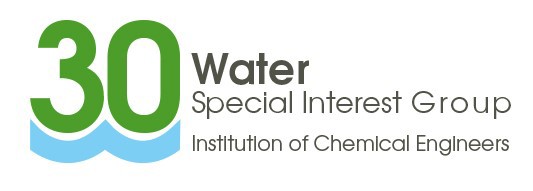

|
Edward Lowton
Editor |


|
| Home> | Plant, Process & Control | >Water management | >Energy efficient waste water project wins young engineering prize |
Energy efficient waste water project wins young engineering prize
25 January 2018
Chemical engineers from the University of Leeds have found a way to reduce external electricity demand and greenhouse gas emissions at waste water treatment works. The project, NH3 Recovery and H2 Production at Waste Water Treatment Works, saw the team win the Institution of Chemical Engineers (IChemE) Water Special Interest Group’s Young Process Engineer Prize 2017.

The Prize was launched in August to mark the Group’s 30th Anniversary, and is sponsored by Arup. Oliver Grasham and Robert White, two postgraduate process engineers who put forward the Leeds submission, won the top prize of £1000.
The project focuses on the removal of nitrogen from wastewater - a necessary but laborious task for these plants. Nitrogen mostly exists as ammonia in wastewater, and is traditionally removed by pumping air in to bacteria. The process uses around 25% of an entire plant’s energy, and contributes to around 75% of its’ greenhouse gas emissions.
Grasham and White have found a way to use sewage sludge, and divert ammonia into the waste streams of a facility before converting it into hydrogen. Sewage sludge produces liquid and solid ‘digestate’. Typically, the solid digestate is sold as a fertiliser, and the liquid goes straight back into the process. However, the Leeds engineers have found a novel way to divert the liquid into a process that decomposes ammonia into hydrogen. The hydrogen can then be turned into fuel cells to generate heat and power.
University of Oxford’s Aman Majid and University of Bath’s Olivia Bailey were named the two runners-up. Majid’s project, Smart Water, also seeks to improve wastewater treatment plants by introducing artificial intelligence. Bailey’s project, Sewer Systems of the Future, looks at designing sewer systems that allow for water conservation and improve efficiency.
Chris Short, Chair of the Water Special Interest Group, said: “These three entries were excellent videos, describing projects where the aims were very credible, and fully in-line with the aims and themes of the competition. The judges noted that these promising projects were at an early stage, and have invited the winners to update us in due course as to the development and outcome of their research.
- Process safety conference
- Upskill engineers and support apprenticeships, urges new report
- Progress on process safety since Buncefield
- Commended for research into nano materials
- New categories as IChemE Awards open for entries
- Chemical engineering professors awarded New Year’s Honours in 2019
- ISC produces its first set of guidance works
- Energy efficiency must be a priority for UK industrial strategy
- Energy technologies for the future
- IChemE launches Energy Centre

















